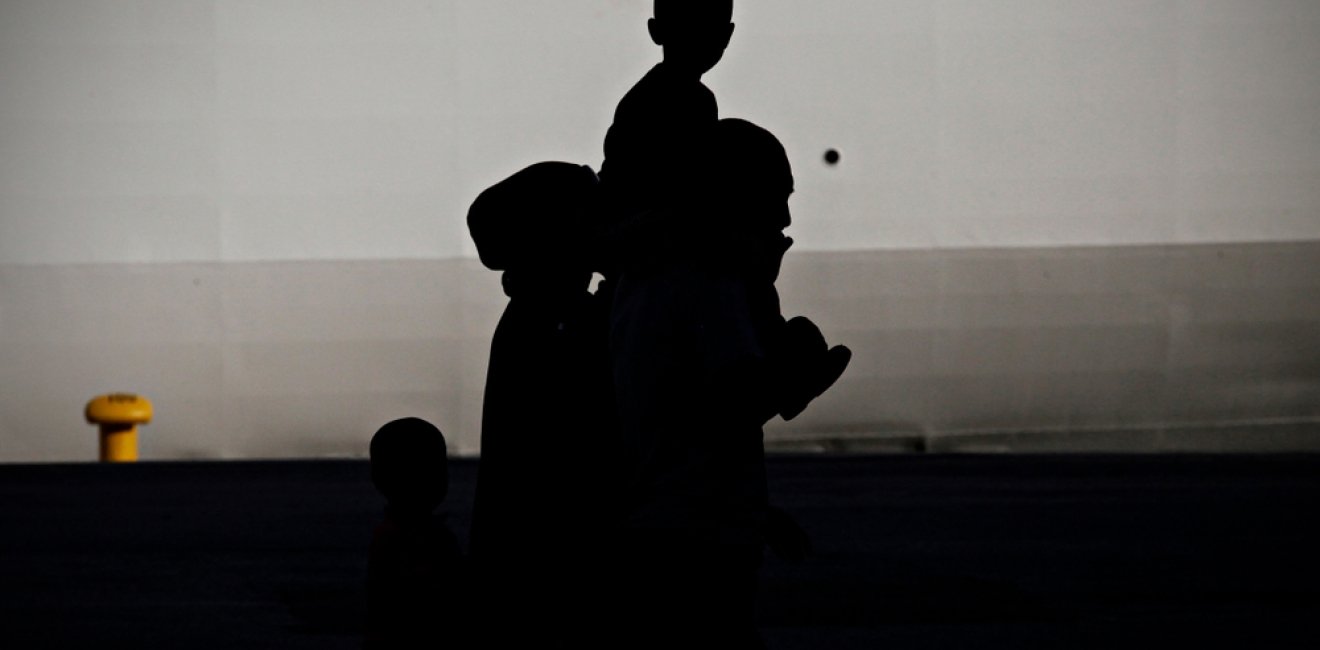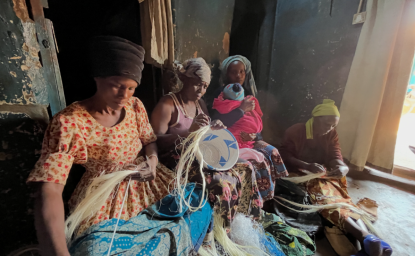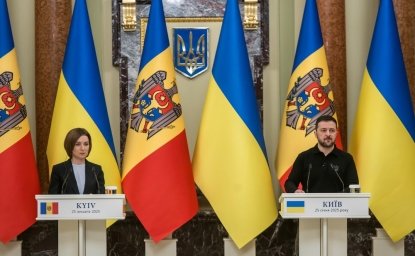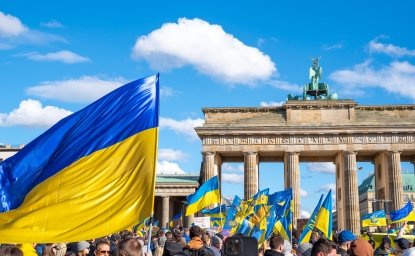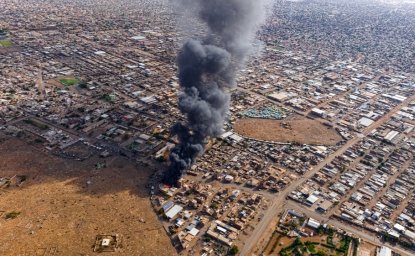The situation for many of the almost four million Syrians who came to Türkiye fleeing the civil war is dire. I am in Türkiye working on a book, My Culture, My Survival: Arts Initiatives by Refugees for Refugees. When I began this research in 2022, I met Syrians who were using arts and culture to forge community, remember their homeland, make connections across diversity, address trauma, develop professional opportunities, and socialize.
Upon returning to Türkiye in 2024, I found an environment of fear, distrust, insecurity, desperation, and hopelessness. I knew that the February 2023 earthquake followed by fraught elections had put Syrians in Türkiye at the center of contentious political battles. I also knew that politicians across the political spectrum were blaming Syrians for the country’s economic woes. However, I didn’t realize how bad things were until I saw it for myself.
Legal Options for Syrians in Turkey
Grasping what is happening on the ground requires some understanding of the official options and legal statuses for Syrians in Türkiye.
Temporary Protection Status (TPS): Most Syrians who arrived in Türkiye since the beginning of the civil war in 2011 have been given TPS, intended to provide immediate, short-term security. With TPS, the government agrees only to return people voluntarily. Children born to Syrians in Türkiye qualify for TPS - not citizenship. TPS card holders are registered to a province where they are required to remain at all times, unless they are authorized to travel or live elsewhere. They have access to free health care and education. However, they cannot legally buy vehicles or property, establish businesses, or work, unless they are granted work permits. They relinquish TPS upon leaving the country.
Short-Term Residency Permits: Residency permits grant more rights than TPS and have typically been for one year and been renewable. Syrians with residency permits can live and travel anywhere within or outside the country. They can establish businesses, apply for loans, and purchase vehicles and property. Their vehicles’ license plates are coded, thus recognizable as foreign-owned. For legal employment, they have to apply for work permits, which are rarely granted for Syrians with residency or TPS. Employers have to pay for each work permit and must employ five Turkish citizens for every foreigner, which disincentivizes them from hiring foreigners. If the work permit expires or is not renewed, the applications for residency are typically rejected, putting pressure on Syrians to accept poor work conditions to avoid losing permits.
Citizenship: Some Syrians, mostly those who married Turkish citizens or who received “exceptional citizenship” because they have education or professional qualifications deemed valuable for the country, have received Turkish citizenship. Syrians told me that the criteria felt random. Some who I know obtained citizenship, while others with better professional standing have not. Some who started the process as long as seven years ago are waiting with no updates. Citizenship gives Syrians full rights. However, they report experiencing prejudice and discrimination. People they encounter treat them as Syrians, not knowing their legal status. Employers or police may know they are Turkish citizens but nevertheless discriminate against them; their Syrian identity is recognizable through names or birth places recorded on identification cards. Extended families may have only some members who are citizens, making it difficult to strategize given that only some family members have stability.
A Bad Situation Made Worse
Syrians’ legal situation hasn’t changed since my 2022 visit, yet the government actions have changed dramatically. The Turkish government is currently using any means necessary to squeeze Syrians until they leave voluntarily, and it is currently deporting numerous Syrians involuntarily. The police are finding any reason to arrest Syrians and use whatever offense, no matter how minor, as a reason for deportation. People have been arrested for not wearing seatbelts, or other minor infractions.
The government has recently set up mobile migration vehicles that move inside cities and randomly ask people on the streets, private establishments, and in their homes for their papers. If a Syrian does not have theirs, or they are somewhere other than where their TPS allows them to be, or their residency permits have expired, they can be arrested and sent to detention centers.
For those with TPS, the government has always conducted occasional sweeps to find people outside the provinces where they are registered. In the past, this offense resulted in fines, return to designated provinces, or possible arrest. Now, the punishment is arrest, detention, and deportation. The home of a single-mother family I met that has no money was destroyed by the earthquake. A humanitarian association in a neighboring province offered the family free accommodation. The family is now living in hiding. Should the mother shop for necessities or take her children to the park, she could be deported.
It has become almost impossible for Syrians to get work permits or authorization to do anything: register associations or start businesses. They submit applications and return month after month, only to be told to wait or do more paperwork. If they engage in the activity without official authorization, they risk deportation. Since they receive no financial support, those without official work permits have no choice but to work illegally. Being found can lead to arrest. It also enables employers to exploit foreign workers by paying them less than minimum wage or requiring long hours because the employees have no recourse. Women are especially vulnerable. One young woman I know can only find work with foreigners, most of whom are men and expect sexual favors. When she refuses, she loses the job. She is currently jobless and desperate for how she can support herself.
Syrians are required to register their home addresses with the government, including after moving to a new location. The online registration process takes months. If someone is living at an address different from where they are registered, they can be arrested. This requirement has been especially dire for those who lost their housing during the earthquake or with the recent economic crisis and have been forced to relocate because of rent increases.
The government has stopped its regular renewal of residency permits, renewing expiring ones for a final time and only for six months. Syrians have been forced to sign documents attesting that they agree not to apply again. When they ask about their options, officials respond that they can obtain a work permit, student permit, or leave the country. Yet, it is mostly impossible to get work permits, and student permits are short-term and not appropriate for many people.
The adult siblings of one family I know obtained Turkish citizenship several years ago. The mother is elderly and recently widowed. She is the only family member with a residency permit. She has “agreed” not to renew her permit when it expires in five months. A work or student permit would not be appropriate for her, even if the government were granting them. She depends on her children financially, but more importantly, they are her family, her community, her support system. She and her family have no idea what to do. Should she be deported to Syria, she would go alone.
“But Where Can We Go?”
The core principle of the United Nations 1951 Refugee Convention is non-refoulement, which “asserts that a refugee should not be returned to a country where they face serious threats to their life or freedom.”
Many Syrians cannot safely return to Syria because they oppose the Bashar al-Assad regime. Returning could result in immediate arrest, imprisonment, and possible death. For those not at risk politically, there is still violence and civil war in the country, and there is no indication of stability in the near future. The threats to “life or freedom” persist.
Young men would be forced to join the military upon their return. As one young musician told me, if he went back, it would be to kill other Syrians or be killed by them.
The economic and physical infrastructure across the country has been destroyed. For Syrians to return homes, they would settle into skeletal lives surrounded by the devastation of war, almost no electricity, no jobs, physical insecurity, corruption—not the basic human rights that international law is intended to ensure.
Most Syrians cannot leave Türkiye for other countries because of an agreement made between Türkiye and the European Union (EU) in 2016. Only those with valid Syrian passports can travel internationally. Renewing Syrian passports is complicated, expensive, and for many, impossible. For military-aged men who deferred military service, passports are valid for two and a half years, a strategy to lure young men back into the country to serve in the military. For others, they expire every six years. For those who have valid passports, it is almost impossible to obtain visas to countries outside of Türkiye because of the EU agreement, and many other countries fear an influx of Syrian migrants.
A vast number of Syrians in Türkiye have been there for over 10 years. They have established homes, businesses, their children are going to school, they are pursuing university degrees and other professional training, they have friends, routines, hobbies, and gyms—they have established lives for themselves. If they return to their war-torn country now, they would once again lose their homes and livelihoods and have to restart their lives with nothing, but this time in an environment where most opportunities are non-existent.
What Happens to People Who are Deported?
From what I have heard, Syrians who have been arrested are typically put into deportation centers and then taken handcuffed, like criminals, across the border to the region in northern Syria controlled by the Turkish government, what is sometimes referred to as the “buffer zone,” “peace corridor,” or “safe zone.”
Individuals who are arrested are often separated from their families. A parent could suddenly find themselves in Syria, their spouse and children still in Türkiye, wreaking havoc on a family’s financial and emotional well-being. Others are given 48 hours notification that the whole family will be deported.
Losing homes and possessions once again, “repatriated” people find themselves in their home country but not in their hometowns. They do not have their accommodations, communities, livelihoods, schools, possessions, sometimes access to bank accounts, or anything else that might resemble “home.” The economy and infrastructure in the zone are weak, and there is rampant conflict, human rights abuses, criminal activity, and poverty.
Some deported people do what they can to eke out an existence within the zone. Others make their way, often with the aid of smugglers, to the Assad-controlled regions to return to their home cities. Others pay smugglers to attempt to sneak into a country in the EU. This is an expensive and dangerous option because the smugglers sometimes steal money or mislead people, and entering countries without authorization is risky. Others take off on their own, trying to cross borders undetected. Others, I’ve been told, have committed suicide.
What I am Seeing on the Ground
Slowly, systematically, and silently, the breath is being squeezed out of Syrians in Türkiye with the seeming intent that they disappear. Syrians are frightened, anxious, depressed, disillusioned, resigned, and hopeless. They lie low, hiding, terrified of doing something that could result in arrest. Those with means are hustling, trying to find any opportunity to leave the country, to go somewhere, anywhere, where they might be able to live with relative stability. I say “silently.” That is the wrong word. Every Syrian in Türkiye knows what is happening and talks of little else. Most nobody else, however, seems to know—Turkish citizens and foreigners in Türkiye, or those of us in the international community. Syrians ask, where are we supposed to disappear to?
What Should be Done?
Ideally, the focus should be on conflict resolution and the rebuilding of Syria so that most Syrians could live in Syria, and thus stop being a “problem” in the countries where they desperately seek refuge. In the meantime, until it is safe for them to return, the international community needs to pay attention to the worsening crisis because it is ultimately producing additional layers of problems—-poverty, violence, trauma, human trafficking, corruption, and an increase of migrants in other countries. Decision-makers around the world should collaborate to create viable, humanitarian options that would enable Syrians to either stay in Türkiye or resettle in a third country where they could live in stability and security and create reasonable futures for themselves and their offspring.
Author
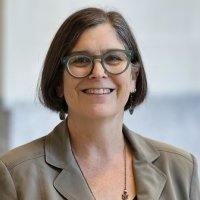
Professor, George Mason University

Refugee and Forced Displacement Initiative
The Refugee and Forced Displacement Initiative (RAFDI) provides evidence-based analyses that translate research findings into practice and policy impact. Established in 2022 as a response to an ever-increasing number of people forcibly displaced from their homes by protracted conflicts and persecution, RAFDI aims to expand the space for new perspectives, constructive dialogue and sustainable solutions to inform policies that will improve the future for the displaced people. Read more



